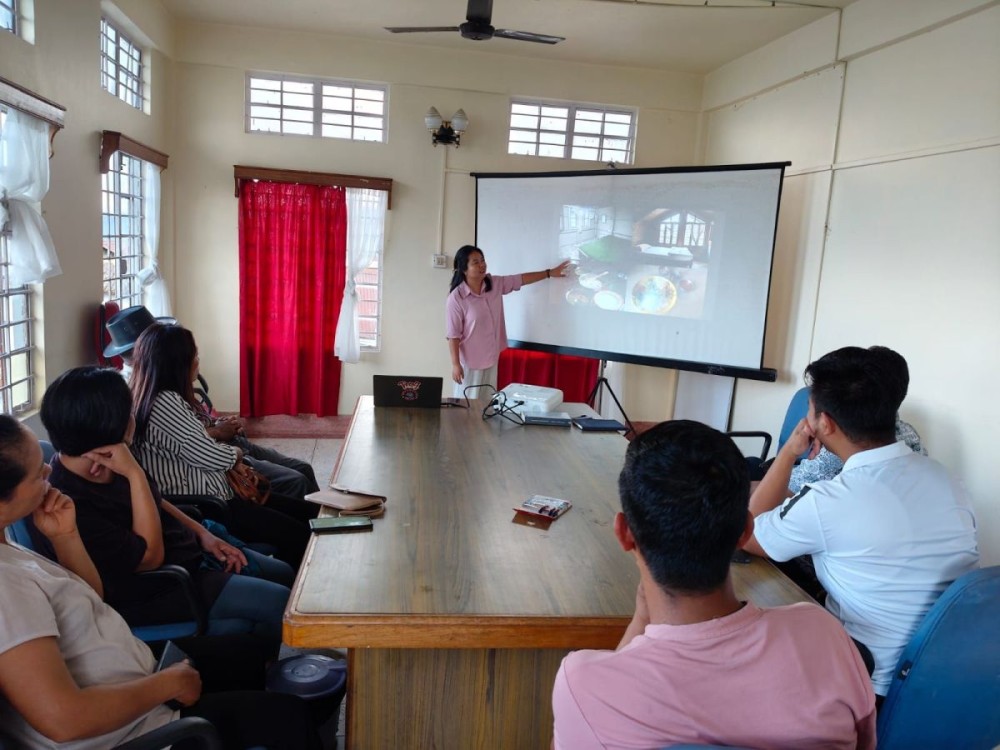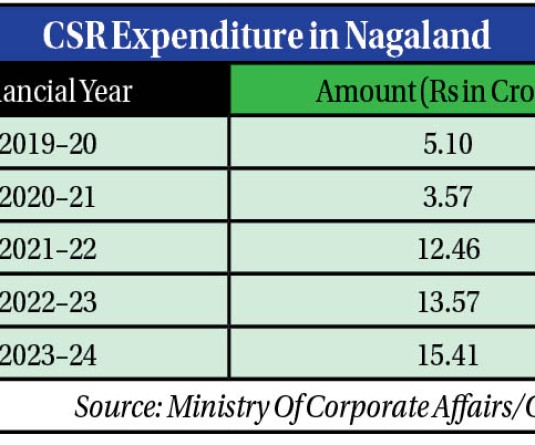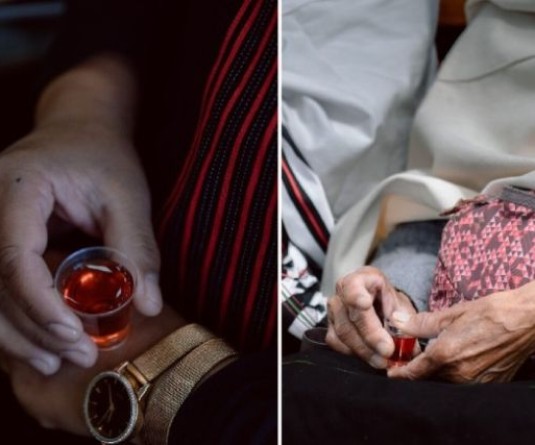Dr. Limasenla Jamir leading the roundtable talk on “Mopungchuket Tourism – From Ideation to Action” at Mopungchuket village on October 4.

Mokokchung, October 4 (MExN): A roundtable talk on “Mopungchuket Tourism – From Ideation to Action” was held today at the MSM Conference Hall, Mopungchuket, organized by the Mopungchuket Community Tourism Society (MCTS). The discussion aimed to translate the village’s strong sense of community-based tourism (CBT) into a framework where individual initiative and entrepreneurship play a vital role in sustaining tourism.
The session was led by Dr. Limasenla Jamir, Assistant Professor at Fazl Ali College, Mokokchung, who served as the resource person. Tailored for the local context, the discussion centered on how villagers can become active stakeholders in tourism through practical strategies and self-driven initiatives.
Drawing from her presentation, Dr. Jamir outlined a range of possibilities for locals—homestays, cultural storytelling, agro-tourism, guided heritage tours, tea garden experiences, and eco-nature trails—while urging participants to align Mopungchuket’s “Clean and Cultural Village” identity with entrepreneurship and digital readiness. She further underscored the importance of hospitality, communication, hygiene, and first-aid training for tourism success.
The roundtable also explored revenue models, governance mechanisms, and sustainability practices to ensure equitable income and environmental responsibility. Dr. Jamir proposed transparent revenue-sharing systems and a dedicated tourism fund for maintenance, training, and welfare.
Among her key proposals was the creation of a homestay union to ensure fair guest distribution, alongside basic hospitality and food hygiene training, and online visibility through digital platforms.
She also recommended initiatives to train youth as heritage guides, organize storytelling sessions on local legends such as Jina and Etiben, and host workshops in weaving, traditional cooking, and craft-making. To ensure sustainability, she suggested eco-trekking routes, river-based tourism, and waste management systems tied to conservation practices.
The discussion further focused on capacity building through workshops in hospitality and small business management. Participants expressed that the roundtable provided clarity on translating ideas into action, helping bridge the gap between enthusiasm and implementation.
Described as a scholar, sociologist, and former journalist with a passion for exploration, Dr. Jamir shared insights drawn from her extensive travels across Nagaland, the Northeast, and the Himalayas.
Beyond academia, she also manages her own creative brand label and serves as a member of the Ungma–Longsa Dikhu Green Zone Project and as the Information Secretary of the Nagaland Community Conserved Areas Forum. Being half-Mopungchuket herself, her presentation carried a personal resonance for the participants.
ABAM Youth Secretary Butesen Ozukum attended the roundtable as the Observer, while MCTS Convener, Limalenden Longkumer, shared the concept and objectives behind the discussion.
The event concluded with a collective understanding that the future of Mopungchuket’s tourism lies in the community’s ability to combine creativity, entrepreneurship, and collaboration within a shared vision for sustainable development.






